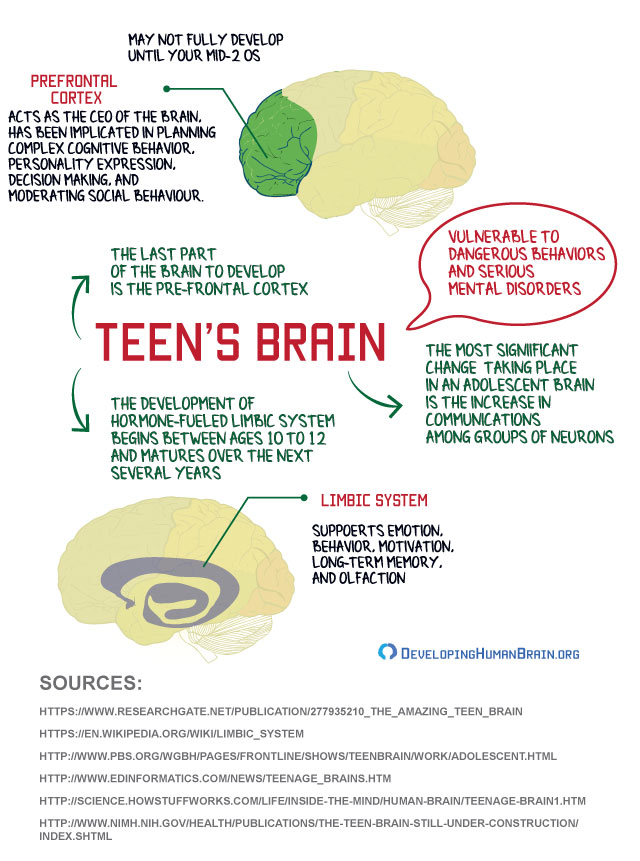
Teenagers are frequently misunderstood by adults. This is partly because your brain has not completely developed and adults are usually quick to judge you for your actions.
A teenage brain is in the process of development and many crucial connections across your brain are still happening as you grow. This means that the nerve cells that connect the different parts of your brain are still being formed or trimmed. The wiring is noted to happen much more during sleeping. Thus, please remember, sleep is very important for your brain development.
The part of your brain which you don’t use often get trimmed or pruned. At the same time, other connections are strengthened. This is the brain’s way of becoming more efficient, based on the ‘use it or lose it’ principle. That’s why if you want to learn a new language or play some instrument, it is best to do it while you are still a teenager.
Have you ever wondered why you do something impulsively? The prefrontal lobe is the decision-making part of the brain, responsible for your ability to plan and think about the consequences of actions, solve problems and control impulses. Unfortunately, prefrontal lobe is the last part to mature in your brain and is only fully developed in your early twenties.
On the other hand, the limbic system which is responsible for your emotions, impulses, aggression and instinctive behaviour and makes you act impulsively matures much earlier. That is why you occasionally do things without thinking and sometimes gets into trouble. You can help yourself by choosing healthy risks such as sports and travel instead of negative ones like smoking and stealing.
During your teenage years, as a result of your physical, hormonal and brain development, your thoughts will predominantly be controlled by sexual fantasies, music, rebellion and risk taking activities etc. Your developing brain also is more vulnerable to stress factors compared to adults and there is a higher risk of poor mental health.
As you grow your brain matures and you will soon be able to make better judgements. The good news is that your brain has lots of plasticity, which means it can change, adapt and respond to its environment. The adults around you might admonish you and it probably for good reasons.
Hang in there dear teens. Your brain will eventually mature and you will enter adulthood wiser and happier. Meanwhile, it is important to get some support or help from your parents or teachers if you think you can’t cope or need help.

References:
- National Institute Of Mental Health, Paul Thompson, PhD.UCLA
- Sources: National Institute Of Mental Health; Paul Thompson, Ph.D, UCLA Laboratory of Neuro Imaging
- http://raisingchildren.net.au/articles/brain_development_teenagers.html
| Last Reviewed | : | 25 June 2018 |
| Writer | : | Datin Dr. Sheila Marimuthu |
| Accreditor | : | Dr. Hargeet a/p Basant Singh |







